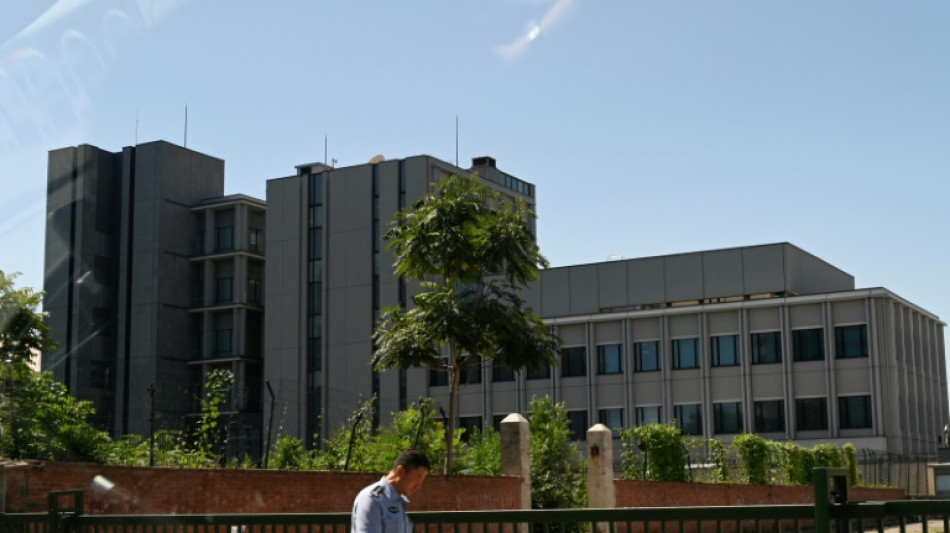
-
 Haliburton leads comeback as Pacers advance, Pistons stay alive
Haliburton leads comeback as Pacers advance, Pistons stay alive
-
Bunker-cafe on Korean border paints image of peace
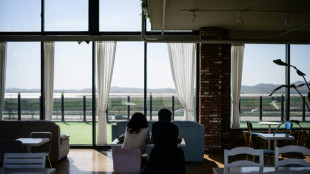
-
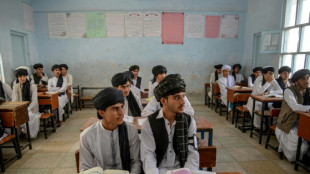 Tunics & turbans: Afghan students don Taliban-imposed uniforms
Tunics & turbans: Afghan students don Taliban-imposed uniforms
-
Asian markets struggle as trade war hits China factory activity
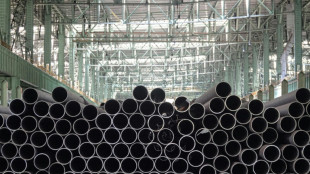
-
 Norwegian success story: Bodo/Glimt's historic run to a European semi-final
Norwegian success story: Bodo/Glimt's historic run to a European semi-final
-
Spurs attempt to grasp Europa League lifeline to save dismal season

-
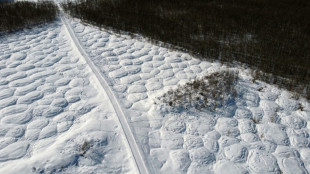 Thawing permafrost dots Siberia with rash of mounds
Thawing permafrost dots Siberia with rash of mounds
-
S. Korea prosecutors raid ex-president's house over shaman probe: Yonhap
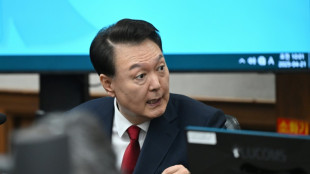
-
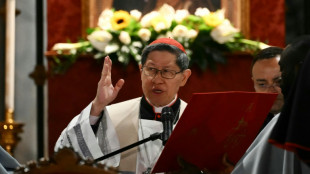 Filipino cardinal, the 'Asian Francis', is papal contender
Filipino cardinal, the 'Asian Francis', is papal contender
-
Samsung Electronics posts 22% jump in Q1 net profit
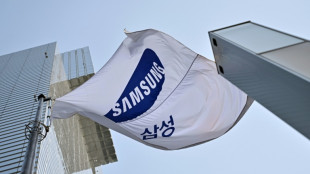
-
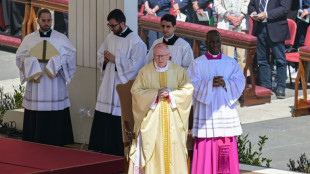 Pietro Parolin, career diplomat leading race to be pope
Pietro Parolin, career diplomat leading race to be pope
-
Nuclear submarine deal lurks below surface of Australian election
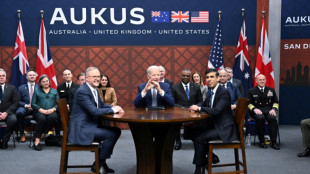
-
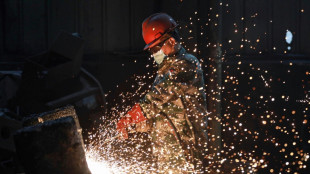 China's manufacturing shrinks in April as trade war bites
China's manufacturing shrinks in April as trade war bites
-
Financial markets may be the last guardrail on Trump
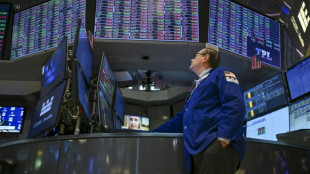
-
 Swedish journalist's trial opens in Turkey
Swedish journalist's trial opens in Turkey
-
Kiss says 'honour of a lifetime' to coach Wallabies at home World Cup

-
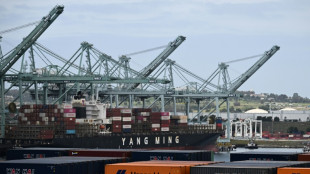 US growth figure expected to make for tough reading for Trump
US growth figure expected to make for tough reading for Trump
-
Opposition leader confirmed winner of Trinidad elections
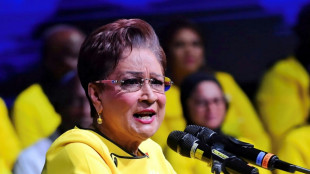
-
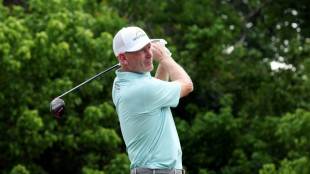 Snedeker, Ogilvy to skipper Presidents Cup teams: PGA Tour
Snedeker, Ogilvy to skipper Presidents Cup teams: PGA Tour
-
Win or bust in Europa League for Amorim's Man Utd

-
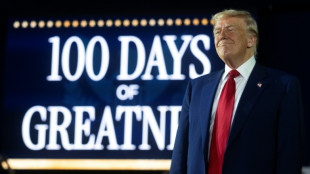 Trump celebrates 100 days in office with campaign-style rally
Trump celebrates 100 days in office with campaign-style rally
-
Top Cuban dissidents detained after court revokes parole

-
 Arteta urges Arsenal to deliver 'special' fightback against PSG
Arteta urges Arsenal to deliver 'special' fightback against PSG
-
Trump fires Kamala Harris's husband from Holocaust board
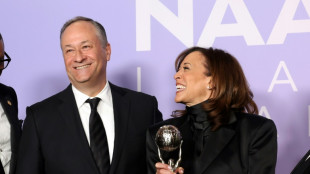
-
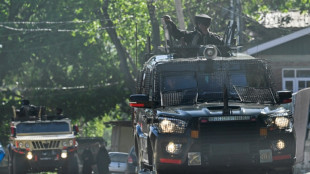 Pakistan says India planning strike as tensions soar over Kashmir attack
Pakistan says India planning strike as tensions soar over Kashmir attack
-
Weinstein sex attack accuser tells court he 'humiliated' her
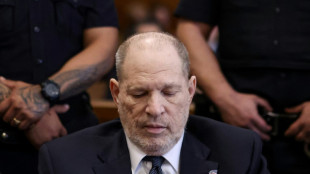
-
 France accuses Russian military intelligence over cyberattacks
France accuses Russian military intelligence over cyberattacks
-
Global stocks mostly rise as Trump grants auto tariff relief
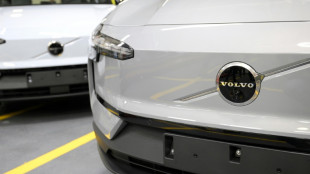
-
 Grand Vietnam parade 50 years after the fall of Saigon
Grand Vietnam parade 50 years after the fall of Saigon
-
Trump fires ex first gentleman Emhoff from Holocaust board
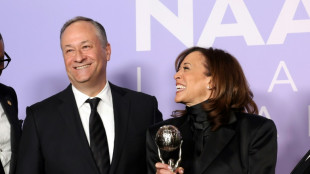
-
 PSG 'not getting carried away' despite holding edge against Arsenal
PSG 'not getting carried away' despite holding edge against Arsenal
-
Cuban dissidents detained after court revokes parole

-
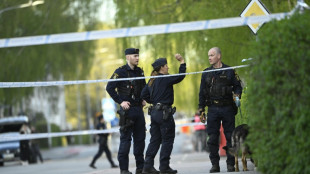 Sweden stunned by new deadly gun attack
Sweden stunned by new deadly gun attack
-
BRICS blast 'resurgence of protectionism' in Trump era
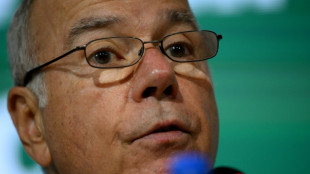
-
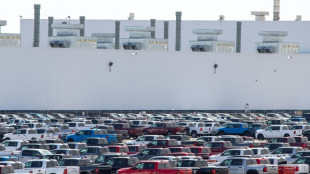 Trump tempers auto tariffs, winning cautious praise from industry
Trump tempers auto tariffs, winning cautious praise from industry
-
'Cruel measure': Dominican crackdown on Haitian hospitals

-
 'It's only half-time': Defiant Raya says Arsenal can overturn PSG deficit
'It's only half-time': Defiant Raya says Arsenal can overturn PSG deficit
-
Dembele sinks Arsenal as PSG seize edge in Champions League semi-final

-
 Les Kiss to take over Wallabies coach role from mid-2026
Les Kiss to take over Wallabies coach role from mid-2026
-
Real Madrid's Rudiger, Mendy and Alaba out injured until end of season

-
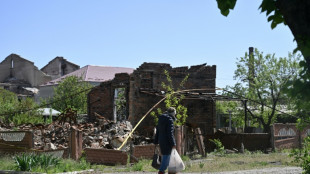 US threatens to quit Russia-Ukraine effort unless 'concrete proposals'
US threatens to quit Russia-Ukraine effort unless 'concrete proposals'
-
Meta releases standalone AI app, competing with ChatGPT

-
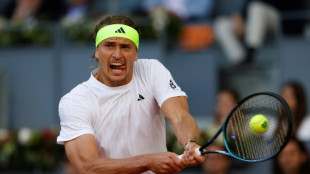 Zverev crashes as Swiatek scrapes into Madrid Open quarter-finals
Zverev crashes as Swiatek scrapes into Madrid Open quarter-finals
-
BRICS members blast rise of 'trade protectionism'
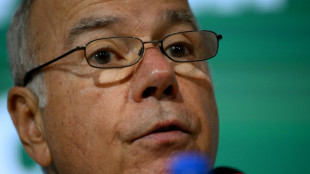
-
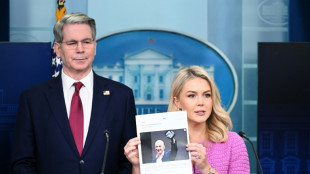 Trump praises Bezos as Amazon denies plan to display tariff cost
Trump praises Bezos as Amazon denies plan to display tariff cost
-
France to tax small parcels from China amid tariff fallout fears

-
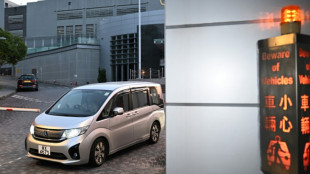 Hong Kong releases former opposition lawmakers jailed for subversion
Hong Kong releases former opposition lawmakers jailed for subversion
-
Trump celebrates tumultuous 100 days in office
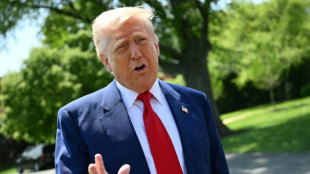
-
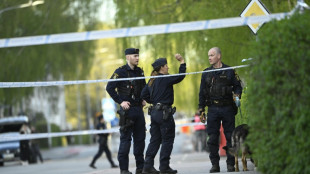 Sweden gun attack leaves three dead
Sweden gun attack leaves three dead
-
Real Madrid's Rudiger banned for six matches after Copa final red


China and Japan's long history of strained ties
A row between China and Japan over Tokyo's decision to release treated wastewater from the Fukushima nuclear plant has added to decades of animosity between the two nations.
Here are some of the key issues that have long impacted the relationship between Asia's two biggest economies:
- Historical wars -
Japan's early 20th-century imperial ambitions resulted in occupations across Southeast Asia and East Asia, including China.
Atrocities after its invasion of China in the 1930s include the "Rape of Nanking" -- a period of mass murder and rape committed after Japanese soldiers took the city -- as well as torture, sexual slavery and human medical experiments.
The Sino-Japanese War, part of World War II, ended with Japanese military defeat in 1945.
Ties were restored with a 1972 Joint Communique in which China renounced "its demand for war reparation from Japan" to foster links between the two countries.
But history remains a stumbling block in modern diplomacy, especially as the two tussle over regional influence.
Over 10,000 people protested in Beijing after Tokyo approved revisionist textbooks in 2005, hurling rocks and eggs at the Japanese embassy.
Old wounds also resurface when nationalist Japanese politicians visit Tokyo's Yasukuni Shrine -- which commemorates senior military and political figures convicted of war crimes after WWII.
China terms these visits as "serious provocations", urging Tokyo to "learn from history".
"The Japanese have been their own worst enemies on history issues," said East Asia analyst Richard McGregor.
But this is due to the Japanese government's belief that China would never accept an apology and "politicise the issue no matter what," he added.
- Territorial disputes -
Another point of contention has been a territorial dispute over islets in the East China Sea, known as Senkaku by Tokyo and the Diaoyu by Beijing.
The remote chain of islands has long fuelled tensions and is the scene of regular confrontations between Japanese coastguard vessels and Chinese fishing boats.
Beijing has grown more assertive about its claim over the islands in recent years, with Tokyo reporting the presence of Chinese coastguard vessels, a naval ship and even a nuclear-powered submarine.
Japanese Prime Minister Fumio Kishida said he had "expressed serious concerns over the situation in the East China Sea" to Chinese President Xi Jinping during the pair's first in-person talks in Bangkok last year.
- Alliances -
The United States has been a staunch ally of Japan since the end of World War II.
Japan hosts several US military bases, with the southernmost region of Okinawa containing the bulk of the 50,000-strong troop presence -- right at the doorstep of mainland China.
This has fuelled China's belief that the United States is intent on encircling and containing it.
But as Beijing's sabre-rattling around Asia grows more frequent, Tokyo has shifted towards a more hawkish stance over security issues.
"They simply do not trust China," McGregor said.
The neighbours maintain several hundred billion dollars in economic trade annually.
But Japan has in recent years deepened its relationship with Washington -- including through the Quad alliance involving Australia, India and the United States.
"The tone of (China's) diplomatic relations with Japan is to some degree set by their relations with the United States," McGregor said.
"It's hard to see how (Japan-China) relations can bounce back in any substantial form."
- Taiwan -
Another flashpoint issue is self-ruled Taiwan -- which Beijing claims as its territory and has vowed to take one day, by force if necessary.
China has in the past year staged wargames around the island -- ruled by Japan for half a century until 1945 -- including missile drills.
Some missiles fired during Chinese exercises last August were believed to have fallen within Japan's exclusive economic zone.
While Japan recognises Beijing's "One China" policy on Taiwan, it is concerned about its neighbour's more aggressive military posture.
"Japan is exceptionally worried about what's happening in Taiwan and that's a big driver of just about everything in the region nowadays," McGregor told AFP, adding that Taipei and Tokyo share close relations.
O.M.Souza--AMWN



